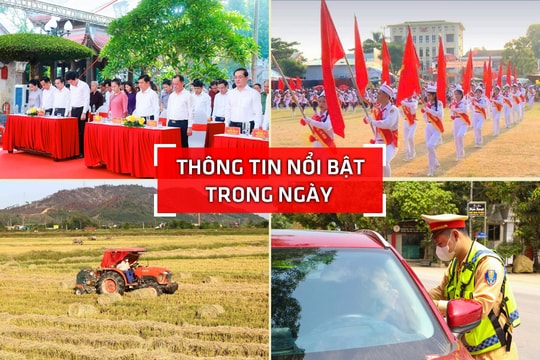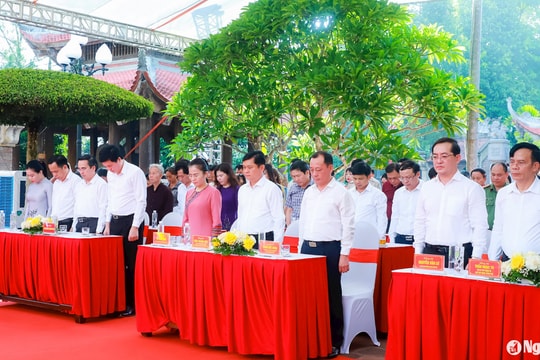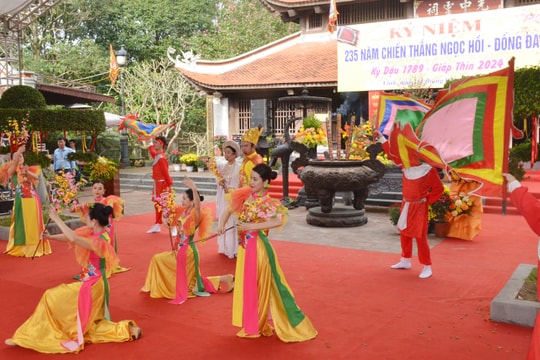Solemn ceremony commemorating the 230th anniversary of the death of Emperor Quang Trung
(Baonghean.vn) - The memorial ceremony aims to honor the great contributions of the cloth hero Quang Trung - Nguyen Hue; at the same time maintain and develop cultural values, and revive the fine traditions of the nation.
On the morning of August 26, at Quang Trung Temple in the complex of national historical and scenic relics of Dung Quyet Mountain and Phuong Hoang Trung Do, Vinh city solemnly held the 230th anniversary of Emperor Quang Trung's death.
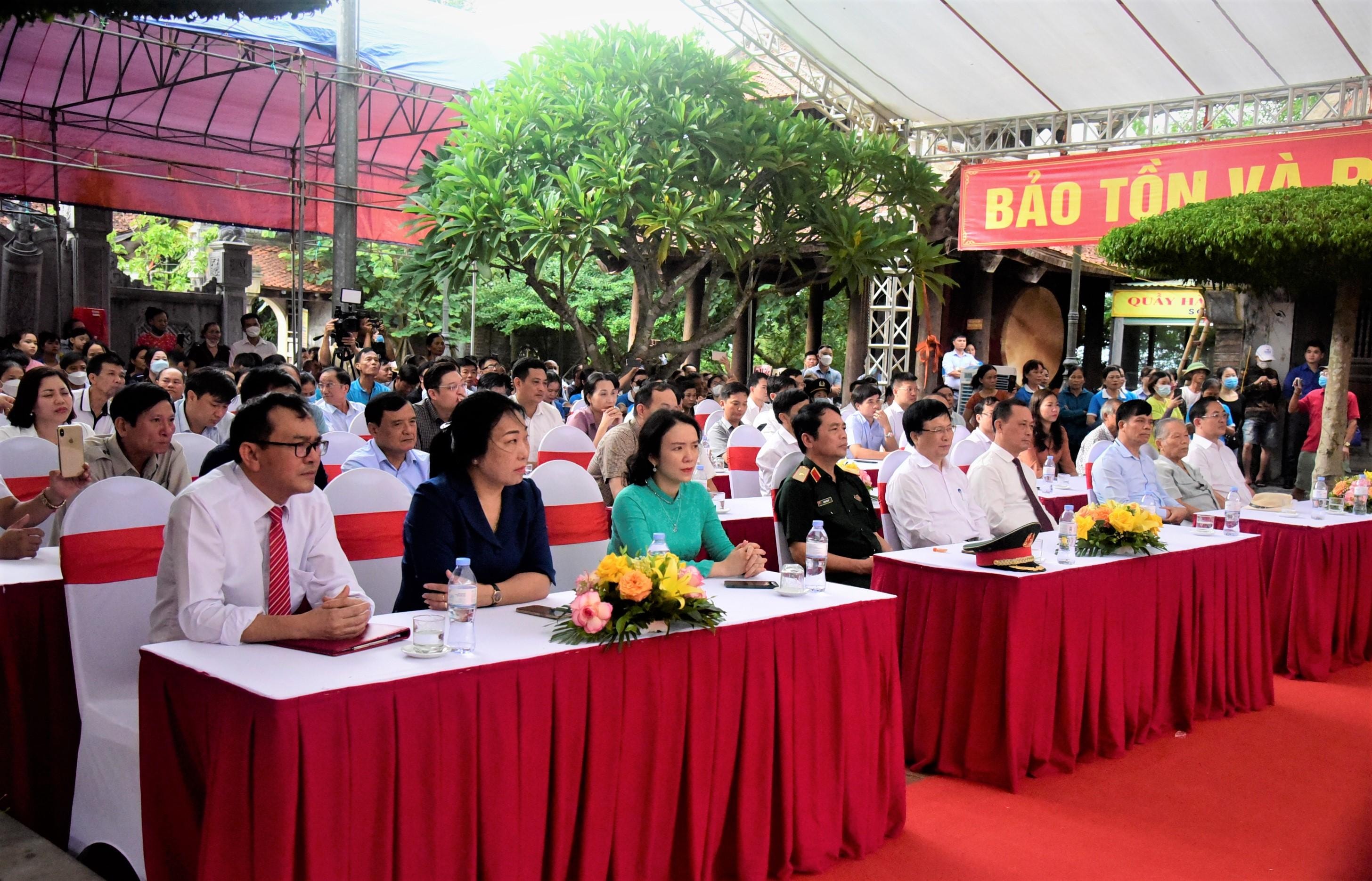 |
Leaders of Vinh province, city and the Department of Culture - Sports and many tourists attended the ceremony. Photo: Minh Quan |
Quang Trung - Nguyen Hue was born in the year of Quy Dau (1753) in Kien Thanh hamlet, Tuy Vien prefecture, Quy Nhon district (now Phu Phong town, Tay Son district, Binh Dinh province). Nguyen Hue's ancestors were originally from the Ho family, from Hung Nguyen, Nghe An, after moving to Quy Nhon, Binh Dinh, they changed their family name to Nguyen.
In the context of the Trinh - Nguyen factions fighting, the North - South divided, the people miserable, the country devastated, in 1771, Nguyen Hue together with Nguyen Nhac, Nguyen Lu, three brothers raised the flag of uprising in Tay Son land. With his genius military strategy and the support of people everywhere, Nguyen Hue commanded the Tay Son army to overthrow the Nguyen lord in Dang Trong, the Trinh lord in Dang Ngoai, creating conditions for the unification of the two regions of South and North.
In 1785, Nguyen Anh asked the Siamese army to intervene, Nguyen Hue commanded the Tay Son army to destroy 50,000 invaders at Rach Gam, Xoai Mut (My Tho). When Le Chieu Thong invited the Qing army to invade our country, in 1789, Emperor Quang Trung directly commanded our army and people to defeat 290,000 Qing troops to liberate Thang Long citadel. This famous decisive battle in the history of our nation's resistance to foreign invaders has been studied and paid attention to by the world's leading military strategists.
 |
The art program recreates the historic Ngoc Hoi - Dong Da victory, honoring Emperor Quang Trung and Princess Ngoc Han. Photo: Minh Quan |
After the great victory in the spring of the year Ky Dau 1789, Emperor Quang Trung embarked on the task of building and consolidating the country. The first and most important task was to choose a land to establish the capital for the new dynasty. After many visits to Nghe An, Nguyen Hue ordered the construction of Phuong Hoang Trung Do citadel in Yen Truong land, ancient Chan Loc district (now Vinh city, Nghe An province).
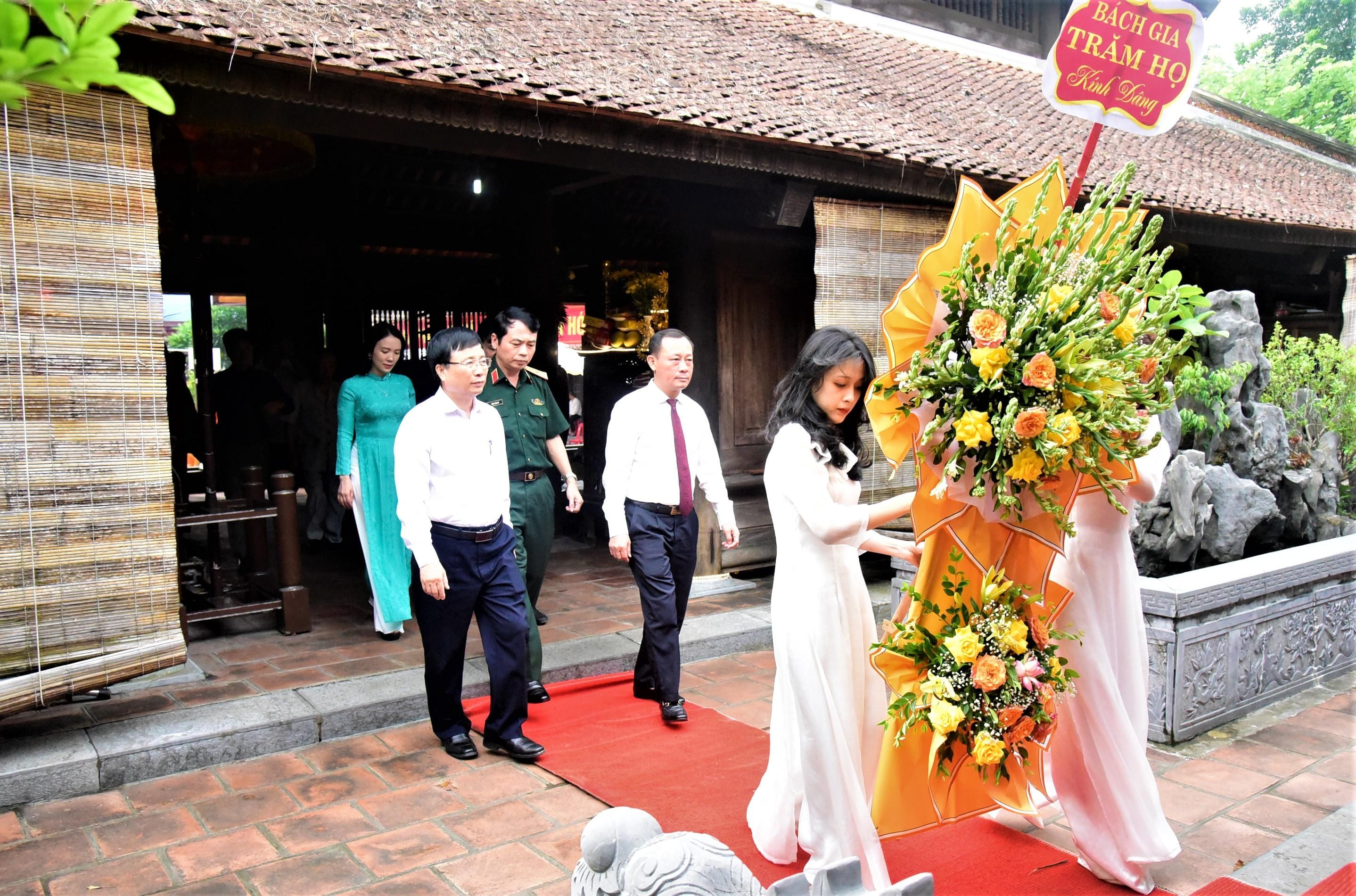 |
Delegates offer flowers at Emperor Quang Trung Temple. Photo: Minh Quan |
While the country was on the path of development, peace and prosperity, on July 29, year of Nham Ty (September 16, 1792), Emperor Quang Trung suddenly passed away at the age of 39, leaving behind endless grief for the people of Nghe An and the people of the whole country.
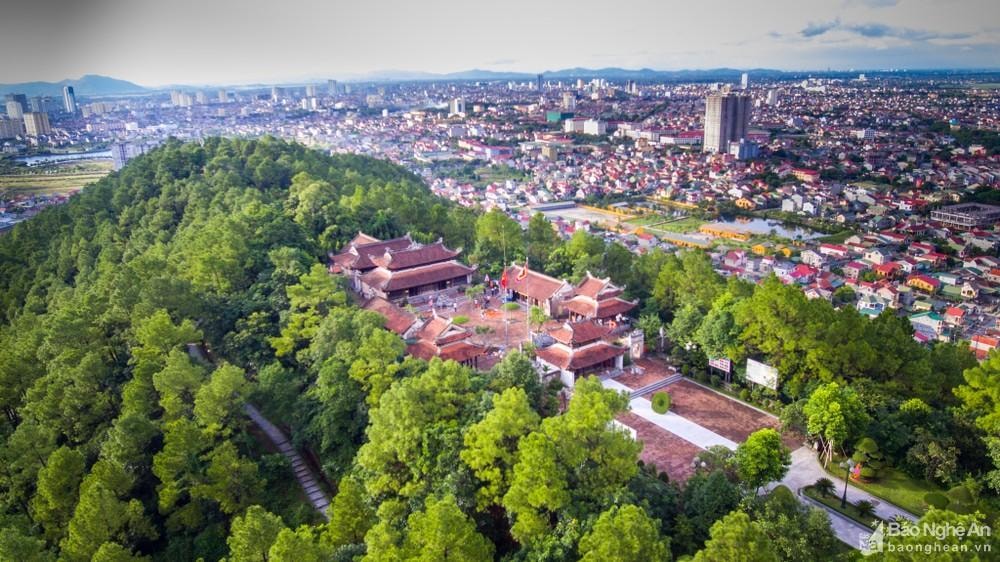 |
| Emperor Quang Trung Temple was built on Dung Quyet Mountain, Trung Do Ward, Vinh City. Photo: Thanh Cuong. |
The death anniversary of Emperor Quang Trung aims to honor the great contributions of the hero Quang Trung - Nguyen Hue; maintain and develop cultural values, arouse the fine traditions of the nation, contribute to raising the sense of responsibility of all levels, sectors and people in preserving and promoting the cultural values of historical and cultural relics; at the same time contribute to effectively exploiting the tourism potential of the national scenic relic complex of Dung Quyet Mountain and Phuong Hoang Trung Do, the temple of Emperor Quang Trung.

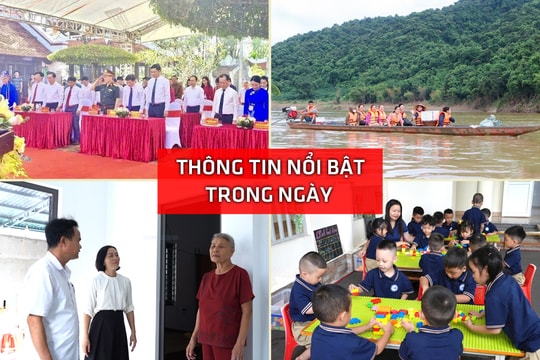
.jpg)
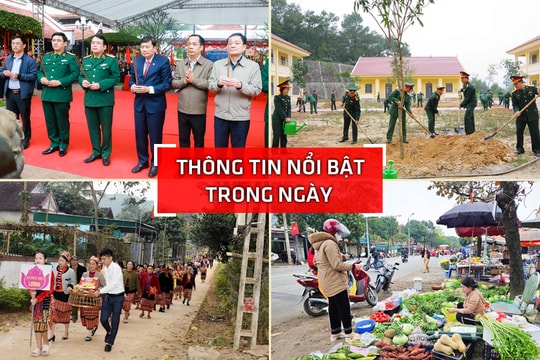
.jpg)
